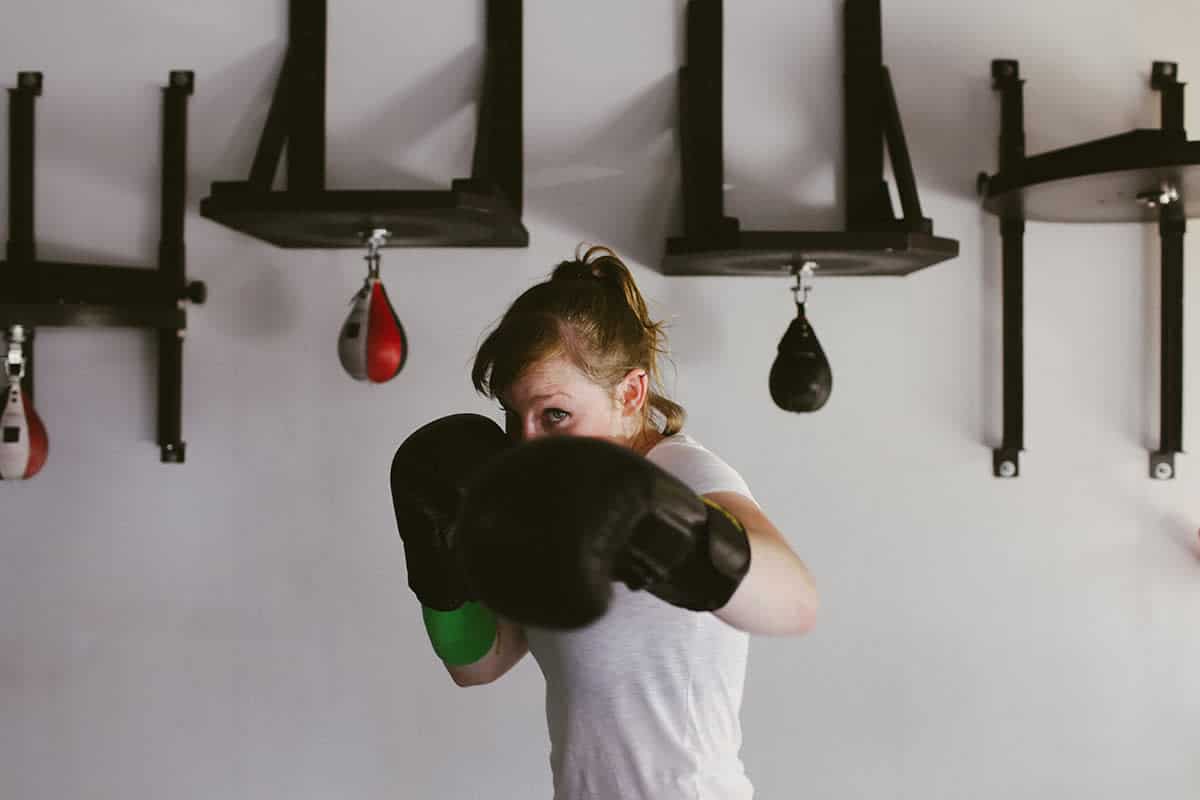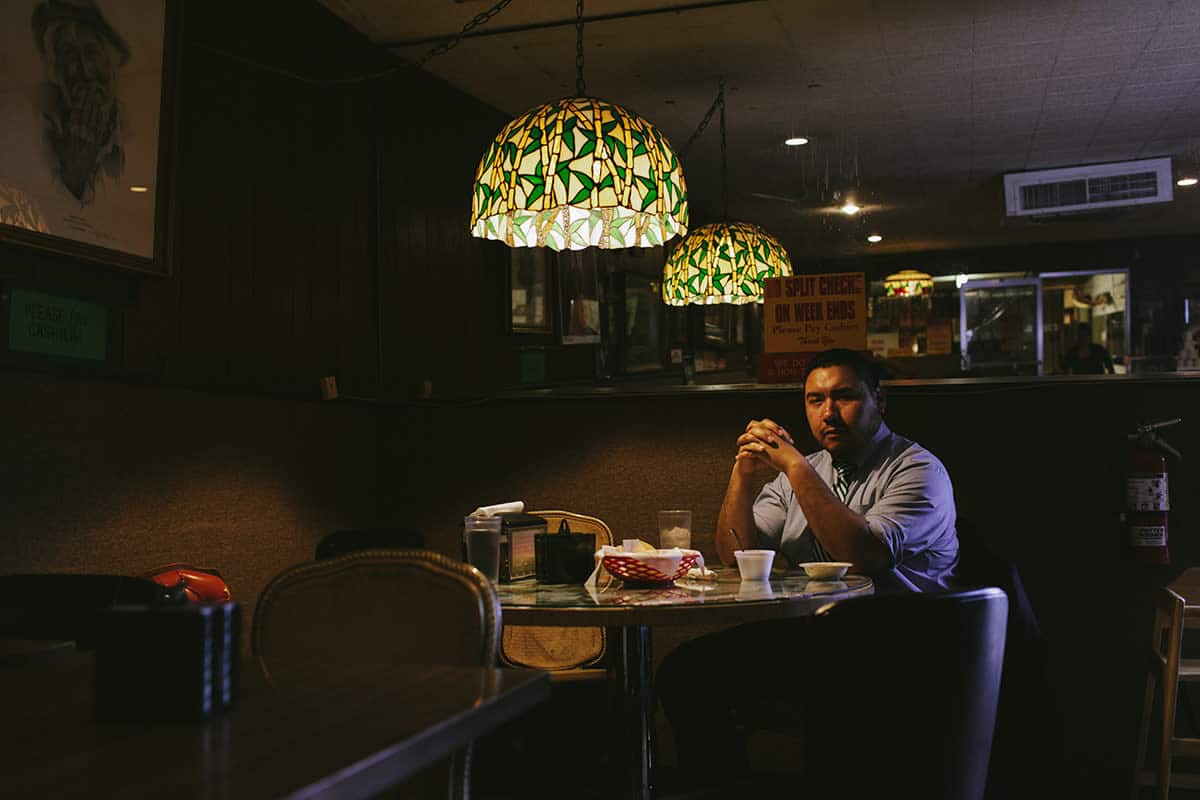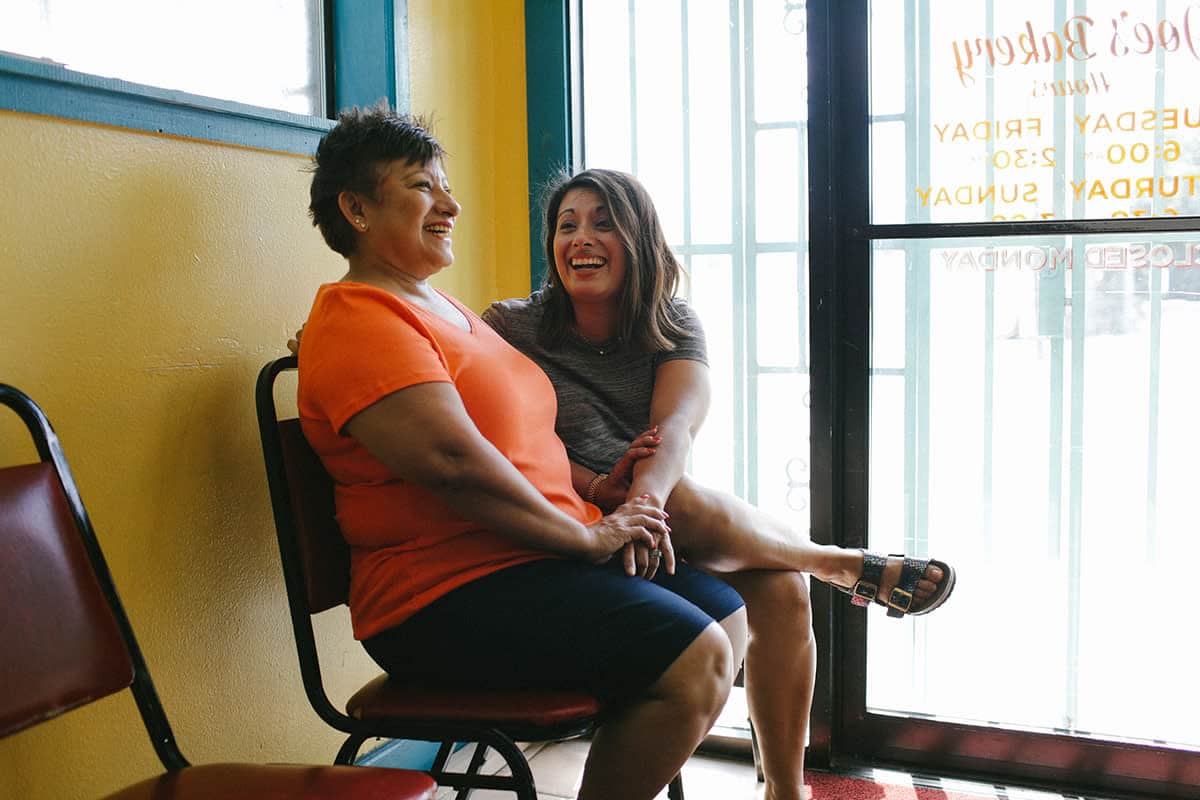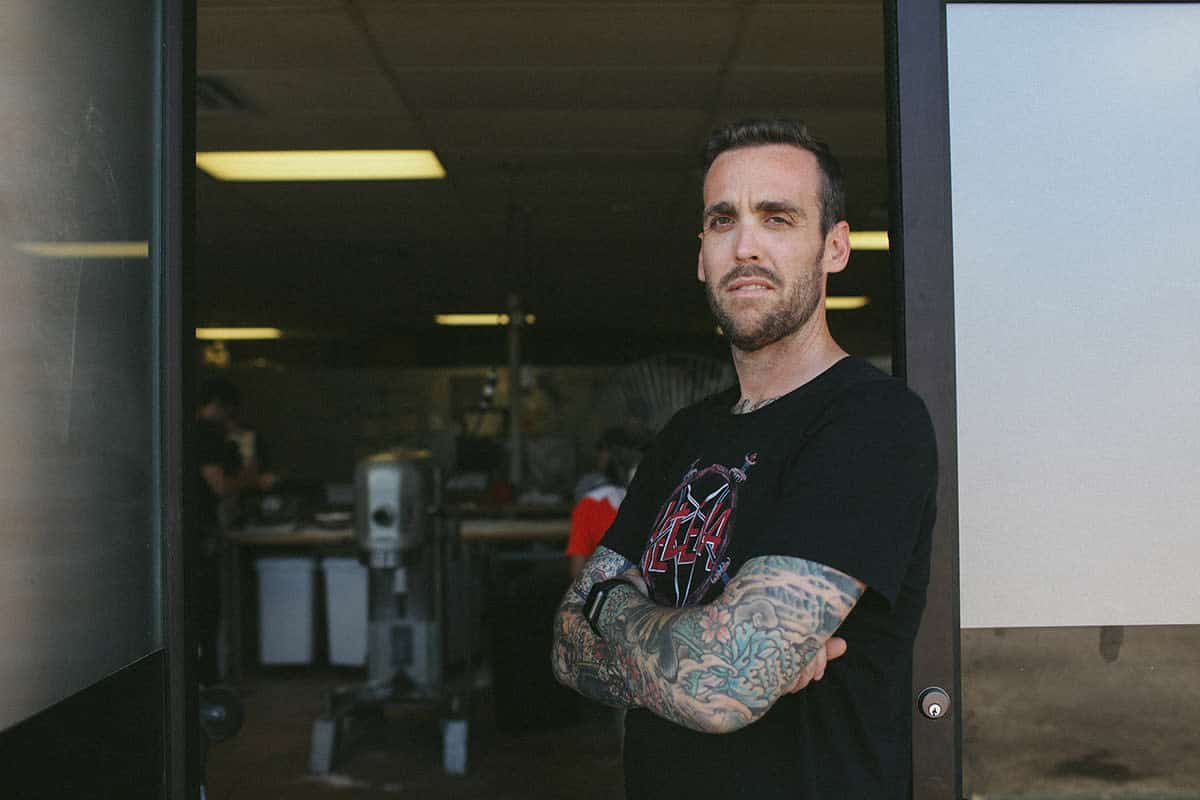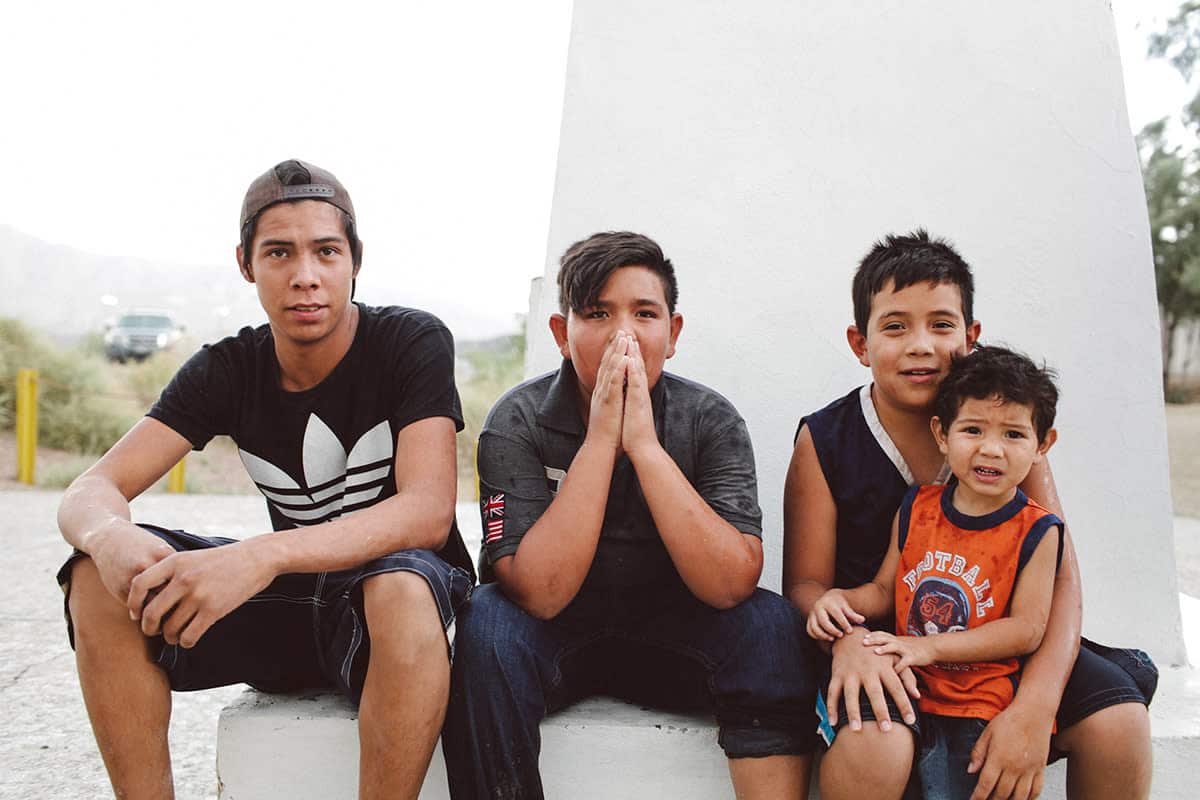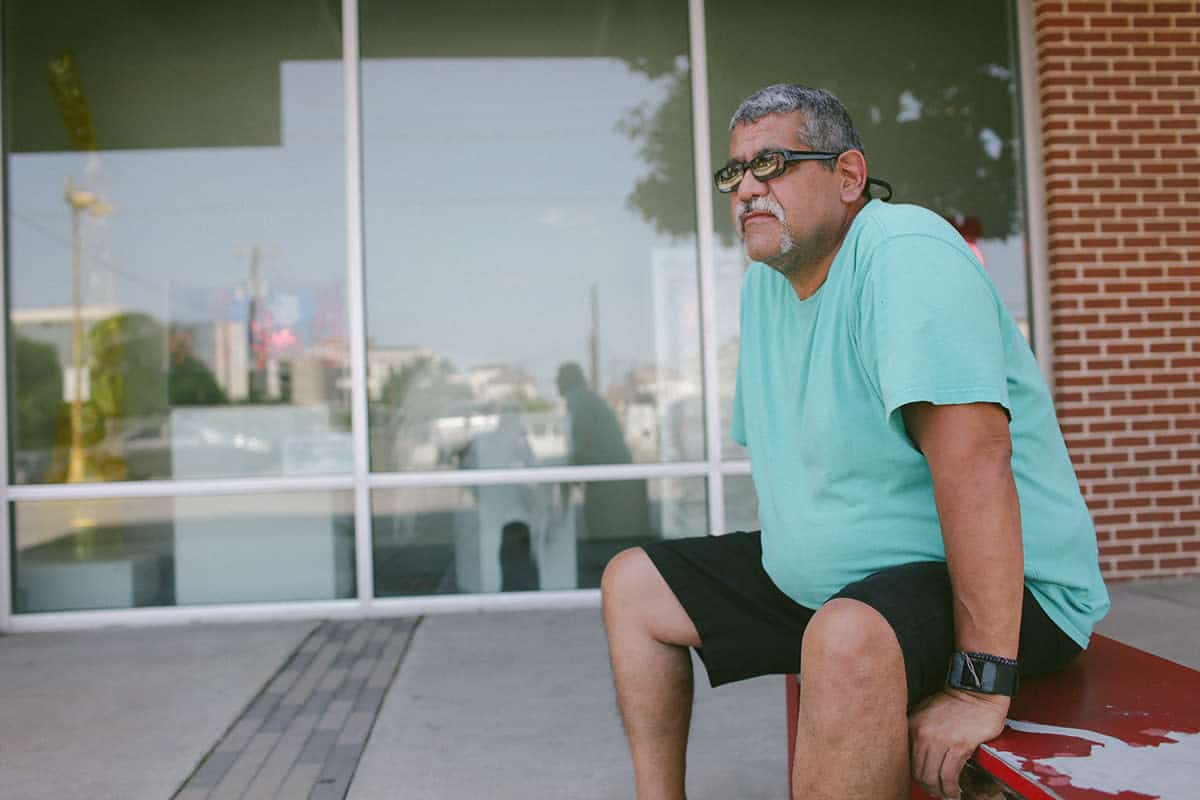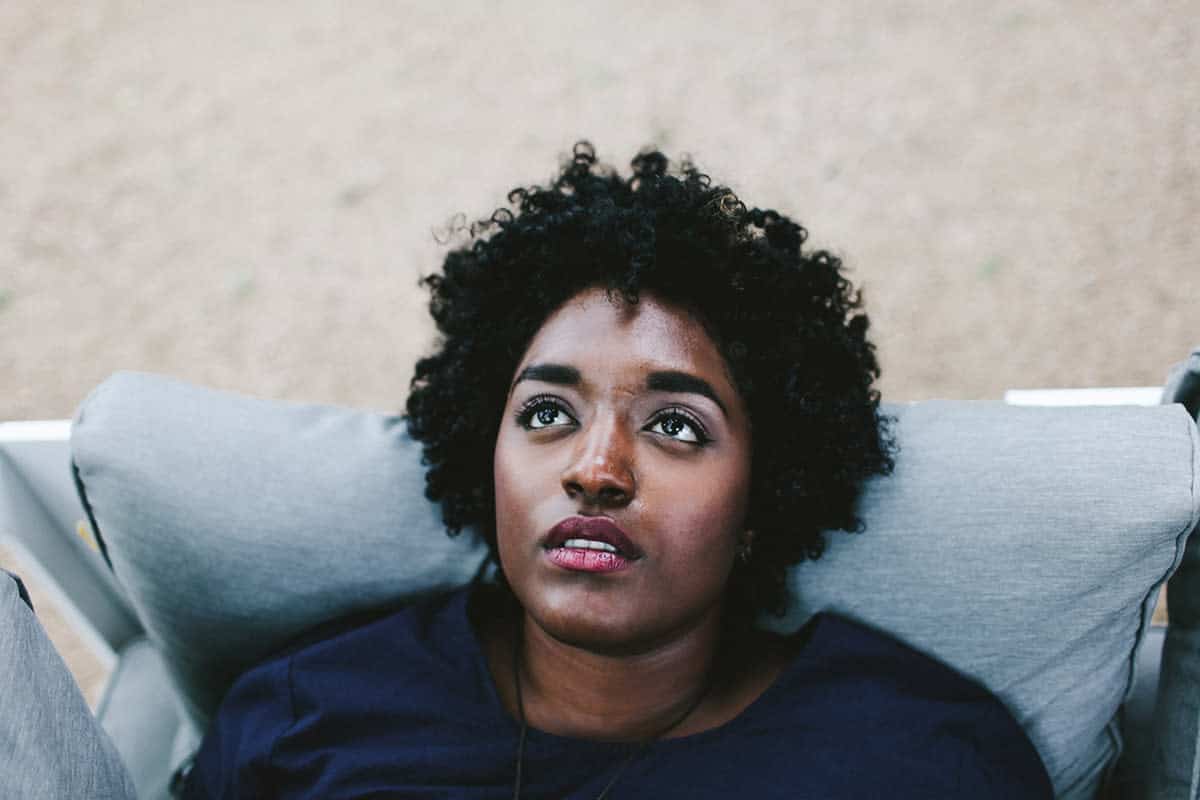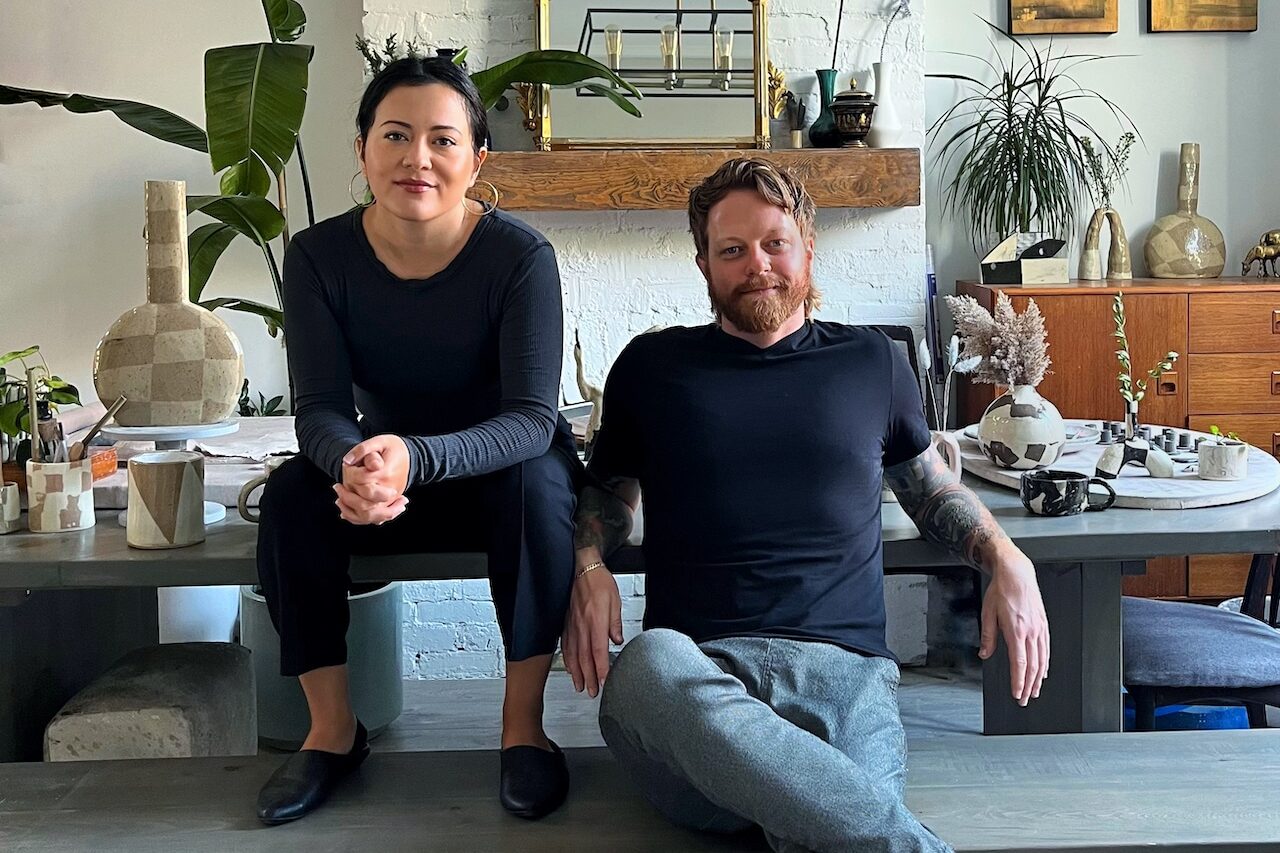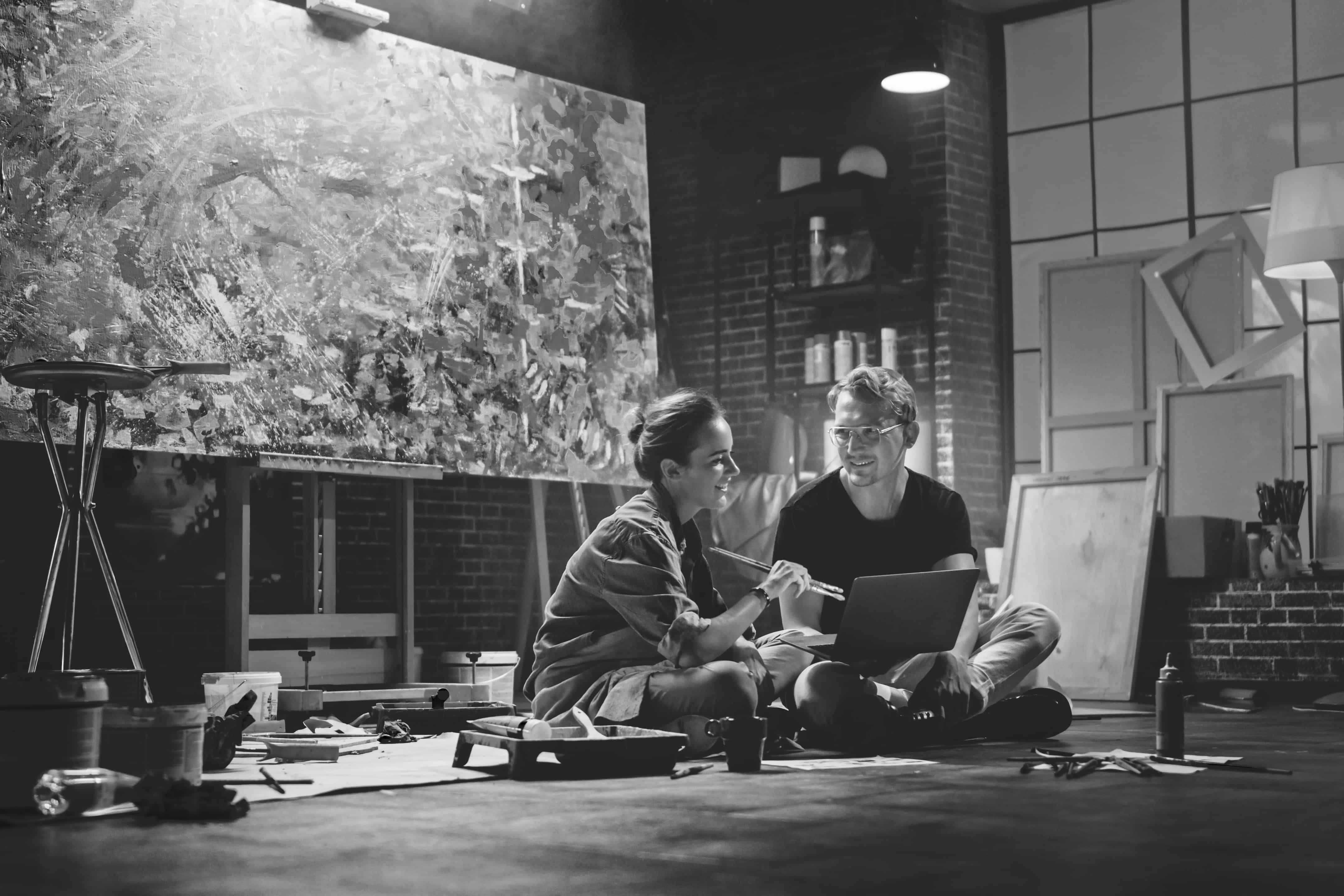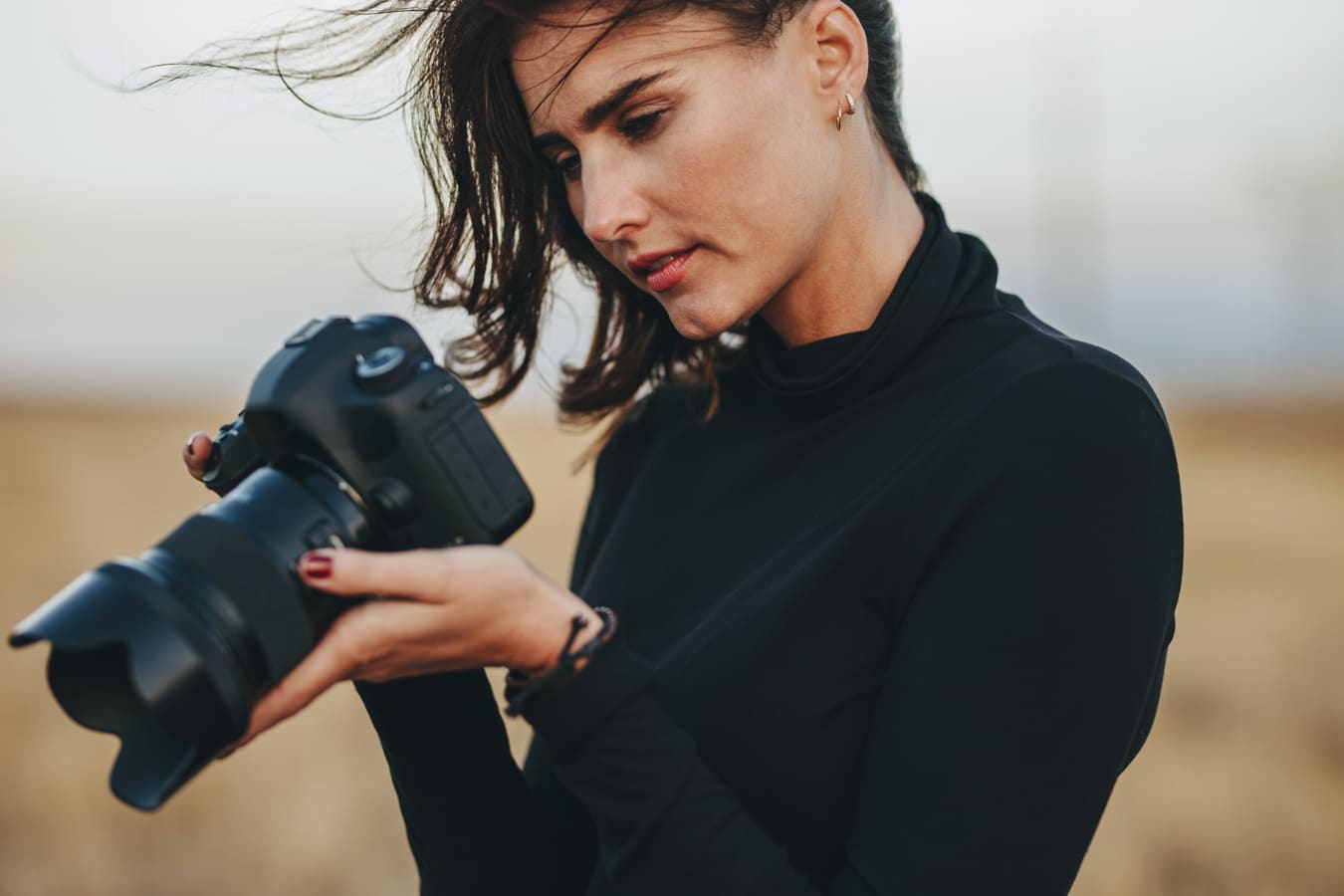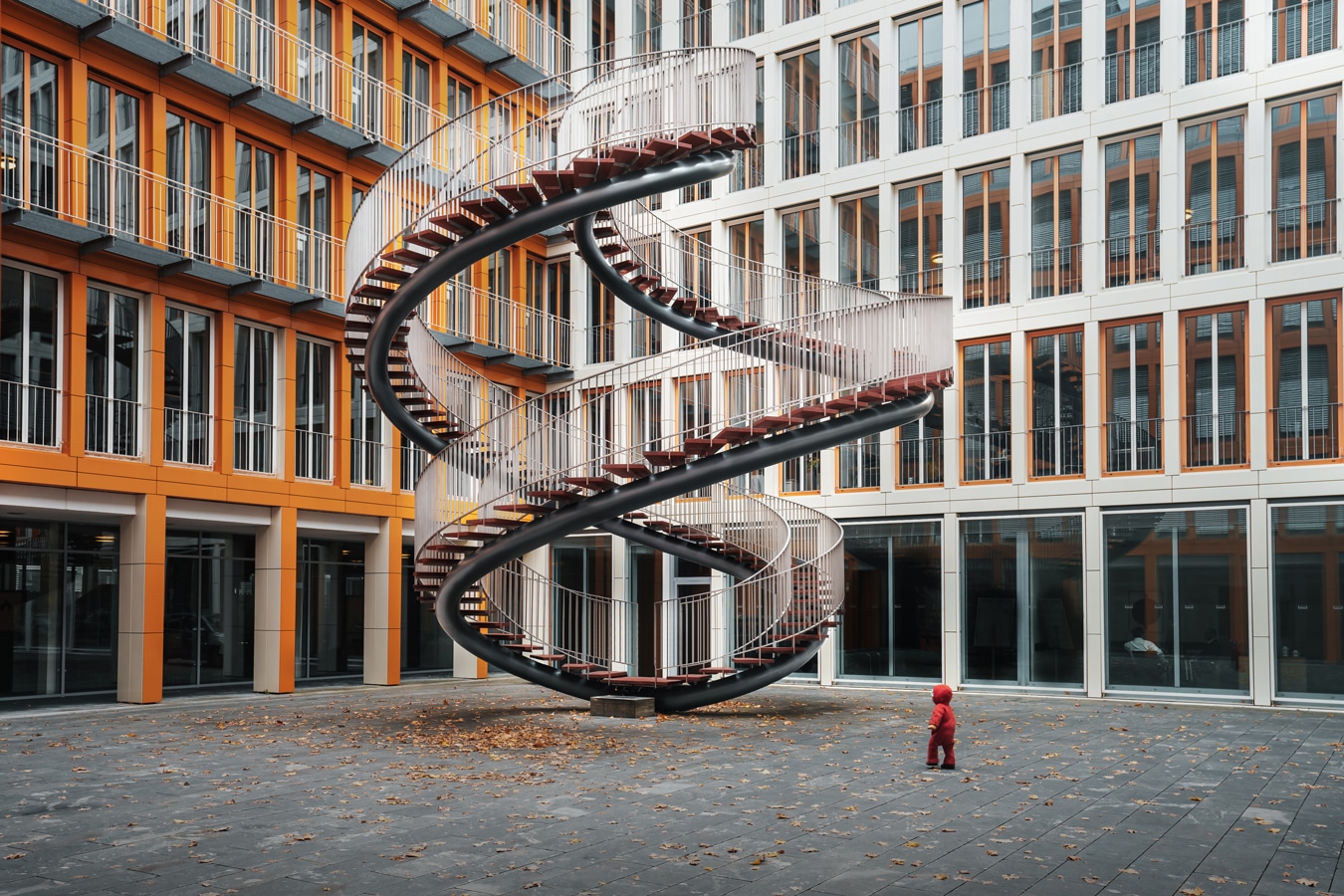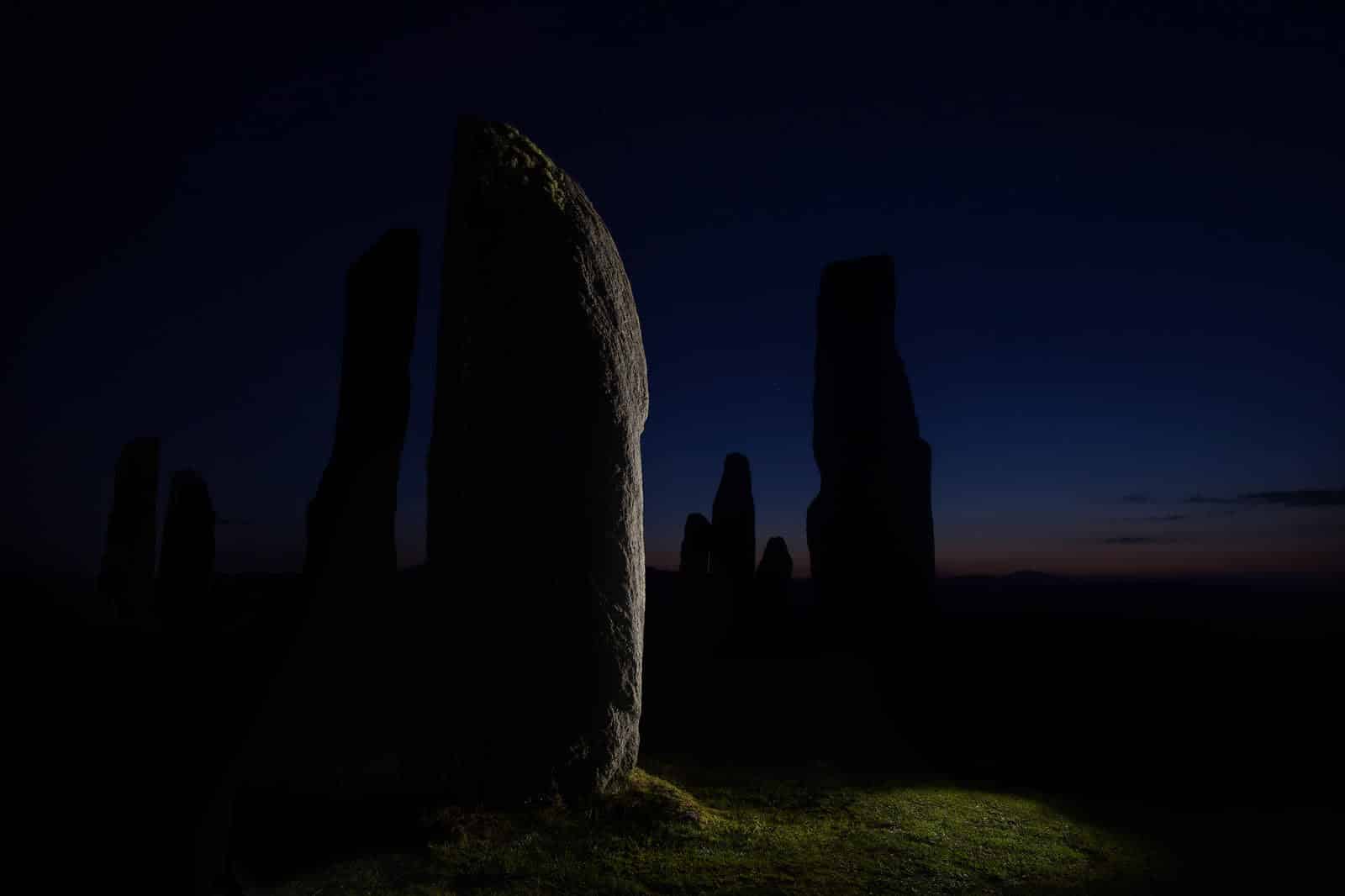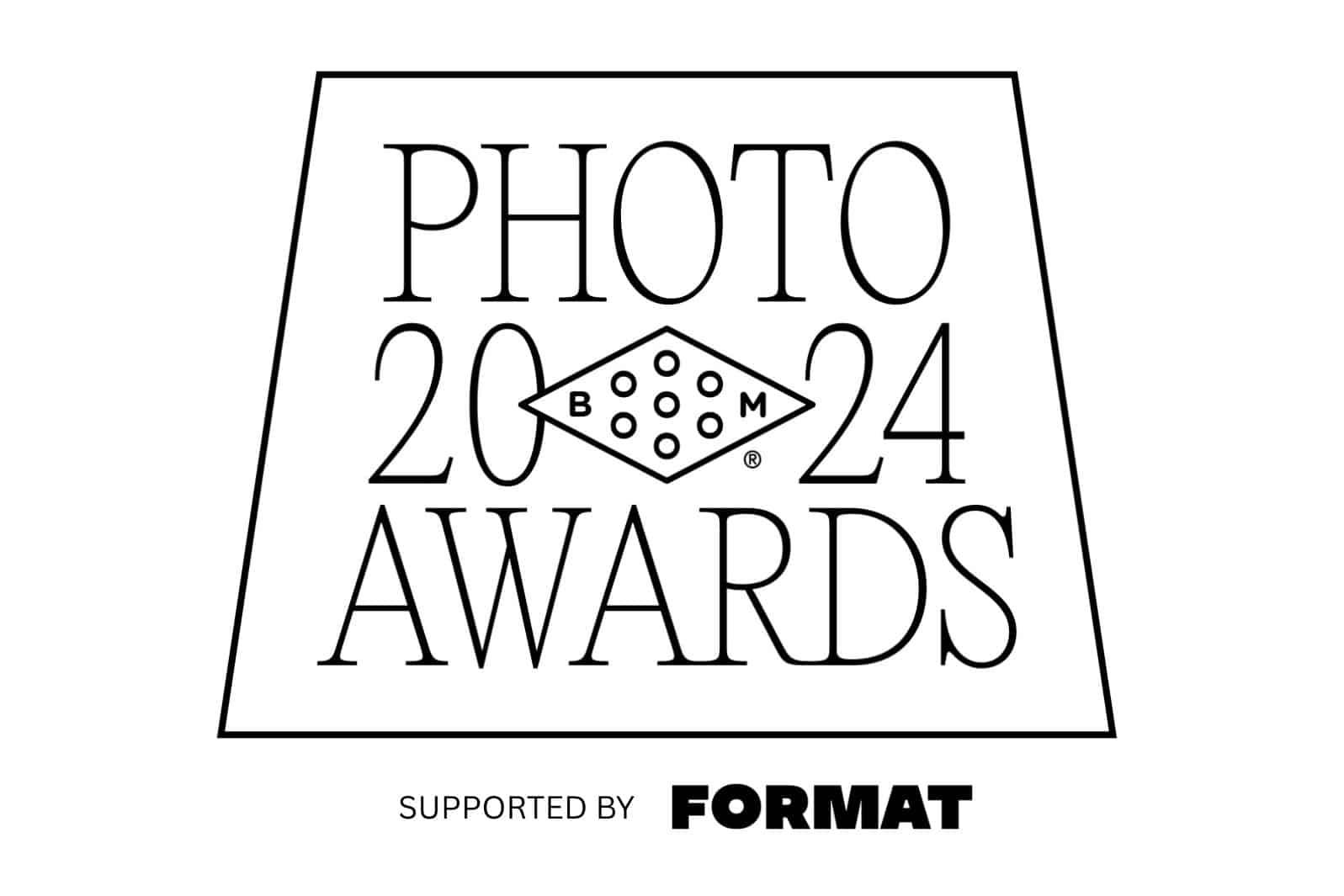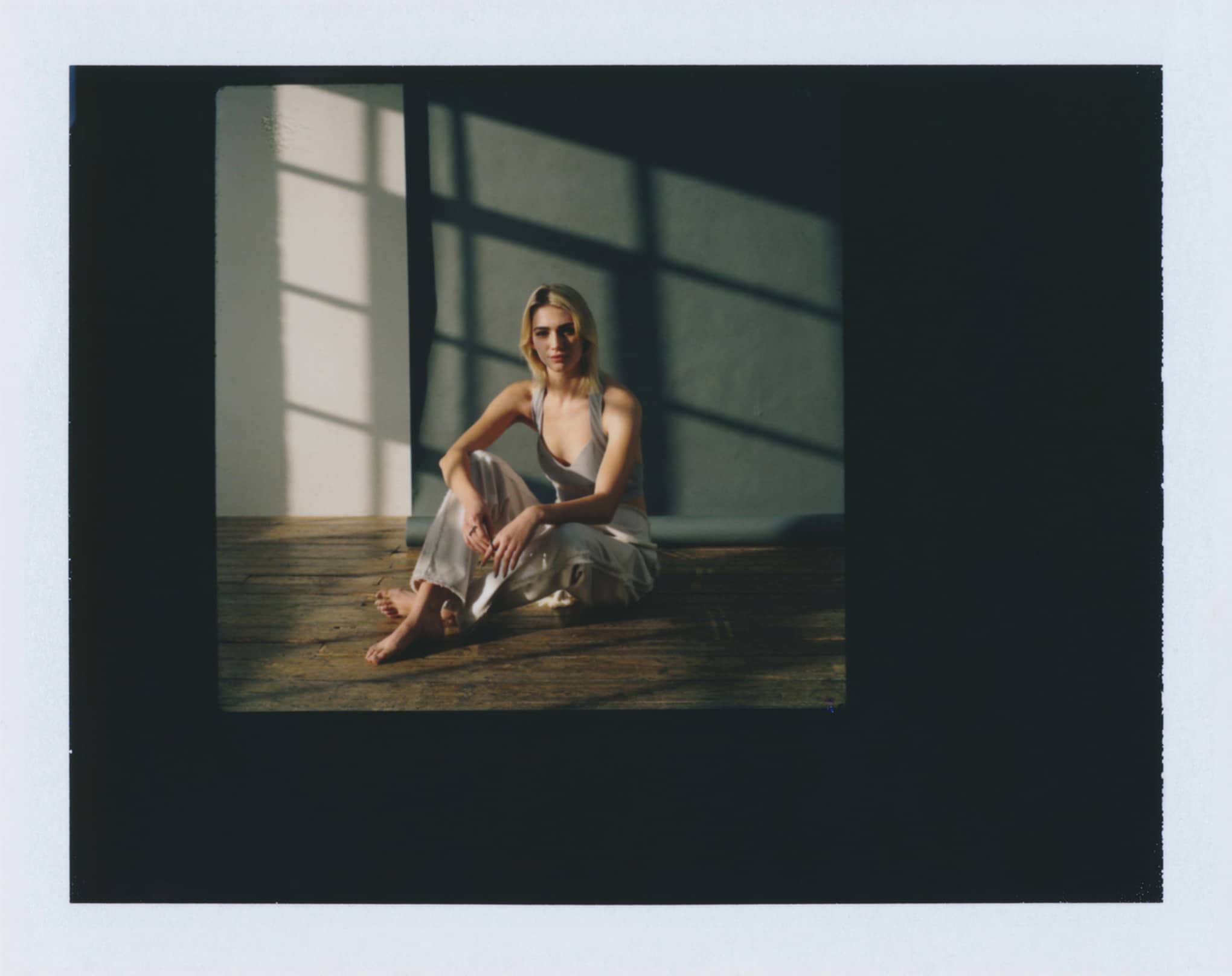Aundre Larrow se enteró de la Residencia Creativa de Adobe por accidente. Estaba rodando su primer Semana de la Moda de Nueva York cuando recibió un correo electrónico de alguien de Adobe que había descubierto su fotografía. Después de preguntar y ver las obras creadas por anteriores residentes de Adobe, Larrow quedó convencido. "Aún no sé por qué me envió ese correo electrónico", dijo Larrow, "pero me alegro mucho de que lo hiciera. No sabía que esto existía".
El interés de Larrow por la fotografía comenzó cuando era un niño obsesionado con las cámaras. Después de la universidad, se trasladó a Nueva York para lo que planeó como un año de autoexploración. Su carrera fotográfica acabó despegando, y Brooklyn se ha convertido ahora en su hogar. Hasta mayo, formará parte de la Residencia Creativa de Adobe, trabajando en la realización de un ambicioso proyecto de retratos.
Titulado historias desde aquíEl proyecto de residencia de Larrow explora cómo nuestro sentido del lugar determina quiénes somos como individuos. Larrow ha viajado por todo el país fotografiando y entrevistando a personas para el proyecto, creando una serie diversa de retratos que ofrecen una ventana a la identidad en Estados Unidos. Larrow dice historias desde aquí se inspiró en los resultados de las elecciones presidenciales de 2017 y en las reacciones que provocaron en todo el país. Larrow empezó a preguntarse qué historias se escuchan, qué vidas se consideran legítimas, y cómo nuestra ubicación geográfica puede determinar a quién escuchamos y a quién pasamos por alto.
Desde que se unió a la Residencia Creativa de Adobe, Larrow ha firmado con la agencia de fotografía Calle Tinker. Da la casualidad de que también representan al fotógrafo de Chicago Paul Octavious, a quien Larrow reconoce como una gran inspiración. "Tío, si me hubieras dicho cuando tenía veinte años y vivía en Chicago, en verano, en una habitación sin ventilador ni tocador ni aire acondicionado, que después de conocer a Paul Octavious me representaría la misma agencia que él... me habría reído en tu cara". Las cosas están cerrando el círculo de una forma que Larrow nunca esperó.
Pedimos a Larrow que compartiera su experiencia con la Residencia Creativa de Adobe hasta el momento, cómo ha crecido como artista gracias al programa y qué consejos tiene para los fotógrafos emergentes que buscan abrirse camino en este salvaje mundo del arte.
Revista Format: ¿Cómo funciona la logística de la residencia de Adobe? ¿Los residentes siguen teniendo trabajos y actuaciones?
Aundre Larrow: Adobe te paga como a un empleado. Tienes prestaciones sanitarias y un salario; haces gastos como una persona normal. Una vez que iniciar la residenciano tienes otro trabajo. La residencia es tu trabajo. Siempre dicen que quieren que crezcas tres años en uno, así que intentan presionarte. No sólo te dan recursos: mi proyecto se basa en los viajes, y ellos pagan los vuelos, los coches, la comida y los alojamientos. Además, tengo dos mentores internos y dos mentores externos.
A lo largo de este año he tenido mucha suerte, y he sido increíble y bendecida y agradecida, por haber podido trabajar con Samsung, American Express y CNN. Eso ocurrió porque la gente encontró mi trabajo a mitad de año y me tendió la mano. Adobe es un gran apoyo, así que si te llega una gran oportunidad, te dicen: "Deja tu proyecto y vete a trabajar en él". El objetivo es que cuando termines la residencia estés en otro nivel como creativo. Así que no tienes otro trabajo, pero dependiendo de lo que surja, hay oportunidades de trabajar en otras cosas si te ayudan a avanzar en tu carrera.
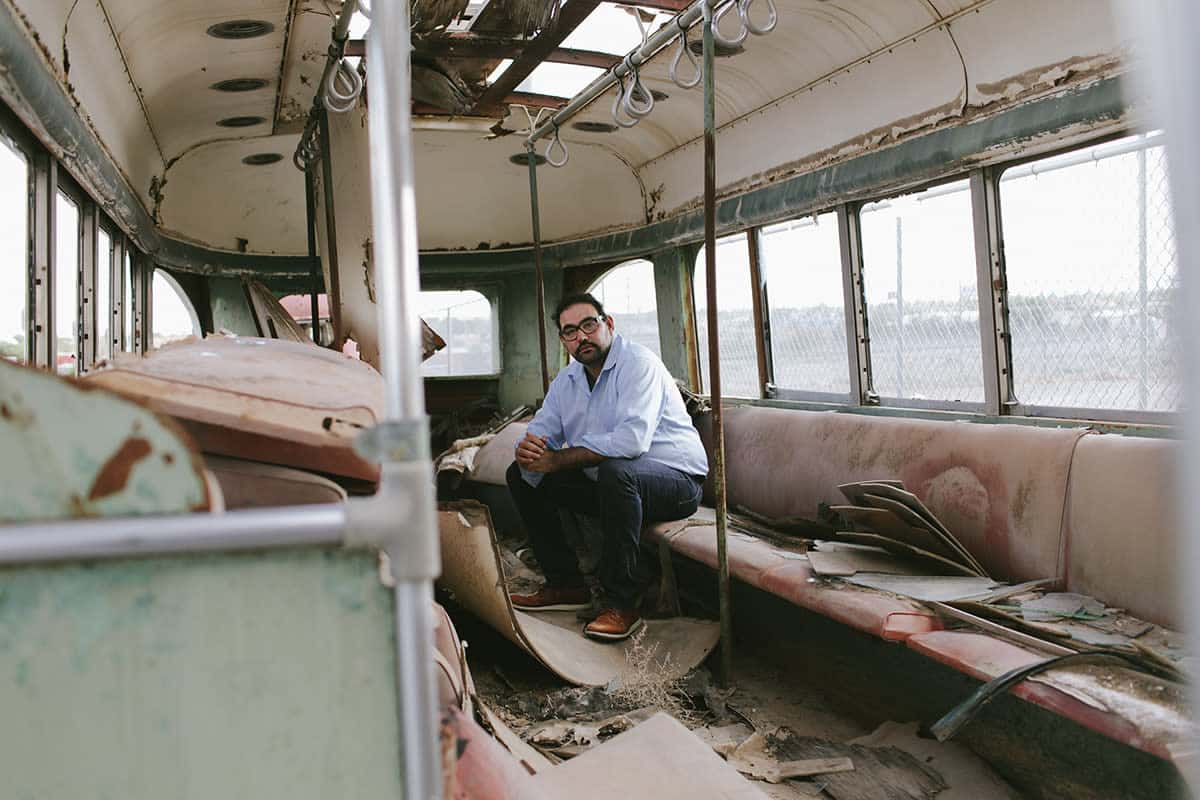
En historias desde aquí: Peter S. en El Paso, Texas.
Háblanos un poco de tus mentores y de cómo trabajas con cada uno de ellos.
Mis mentores internos son Matthew Richmond [Director de Diseño de Experiencias en Adobe XD] y Michelle Wei [Directora de Producto de Adobe Lightroom]. Matthew y yo repasamos mi estrategia general, la diseño de mi sitioy cómo comercializo mi trabajo y a mí misma. Michelle examina cada palabra de todo lo que escribo, preguntándose: "¿Se traduce esto adecuadamente a tu objetivo?" Porque el objetivo es que pases de "Acabo de graduarme en la universidad y soy una creativa y todo esto es divertido y estoy intentando no arruinarme" a decir: "Esto es algo serio ahora y tienes que entender todo lo que conlleva".
Los mentores externos son personas a las que Adobe paga para que te asesoren. Yo tengo Mac Premoes un cineasta que vive en Brooklyn; y JM Harperque también es cineasta. La razón por la que elegí a dos cineastas es que yo no tengo ninguna experiencia cinematográfica y se supone que mi último proyecto para la residencia es un cortometraje. Además de todo eso, tú y el director del programa tenéis una entrevista semanal.
¿Cuál es el proyecto principal en el que estás trabajando? ¿Sigue siendo bastante parecido a lo que planteaste originalmente en tu solicitud de residencia?
Mi proyecto se llamaba Cámara de Eco. Recuerdo que tuve una conversación con mi compañero de piso cuando se produjeron los disturbios de Ferguson. Me preguntó por qué la gente estaba destruyendo sus propios barrios, y yo intentaba explicarle por qué estaba ocurriendo esto y él simplemente no lo entendía. En la época de las elecciones me sorprendieron un poco los resultados y qué estados iban en una dirección u otra. Sentía que no entendía realmente a la gente que me rodeaba. No dejaba de pensar en el voto en términos de lugar, como que Ohio es un estado indeciso. Me pareció muy interesante desde el punto de vista ideológico.
Mi idea original era que Cámara de Eco es este proyecto en el que el lugar en el que estamos hace esta cámara de eco para nosotros. Era un nombre demasiado agresivo. Cuando empezó el proyecto cambié el nombre a Historias de aquí.
En el proceso de solicitud, te hacen muchas preguntas sobre en qué has trabajado, ejemplos de trabajos anteriores, cómo quieres crecer. Su objetivo para el año es el crecimiento y la documentación de ese crecimiento.
¿Qué ha sido lo más difícil de tu residencia en Adobe hasta ahora?
Como creativo, muchos de tus compañeros son creativos. Lo que se espera de ti es que consigas esta residencia, así que tienes que hacer el mejor trabajo que nadie haya visto nunca, inmediatamente. Creo que al principio me costaba mucho compartir mi trabajo porque tenía miedo de cómo lo verían mis compañeros, mis nuevos compañeros o la gente de Internet. Me preocupaba mucho que lo que estaba haciendo no saliera bien. Otra cosa que supuso un reto es que, después de entrevistar a la gente, siempre me siento muy raro al marcharme. Salir de esas entrevistas después de que alguien me haya desnudado una parte de su alma fue realmente difícil. Cada vez que hago una entrevista me siento un poco incómoda.
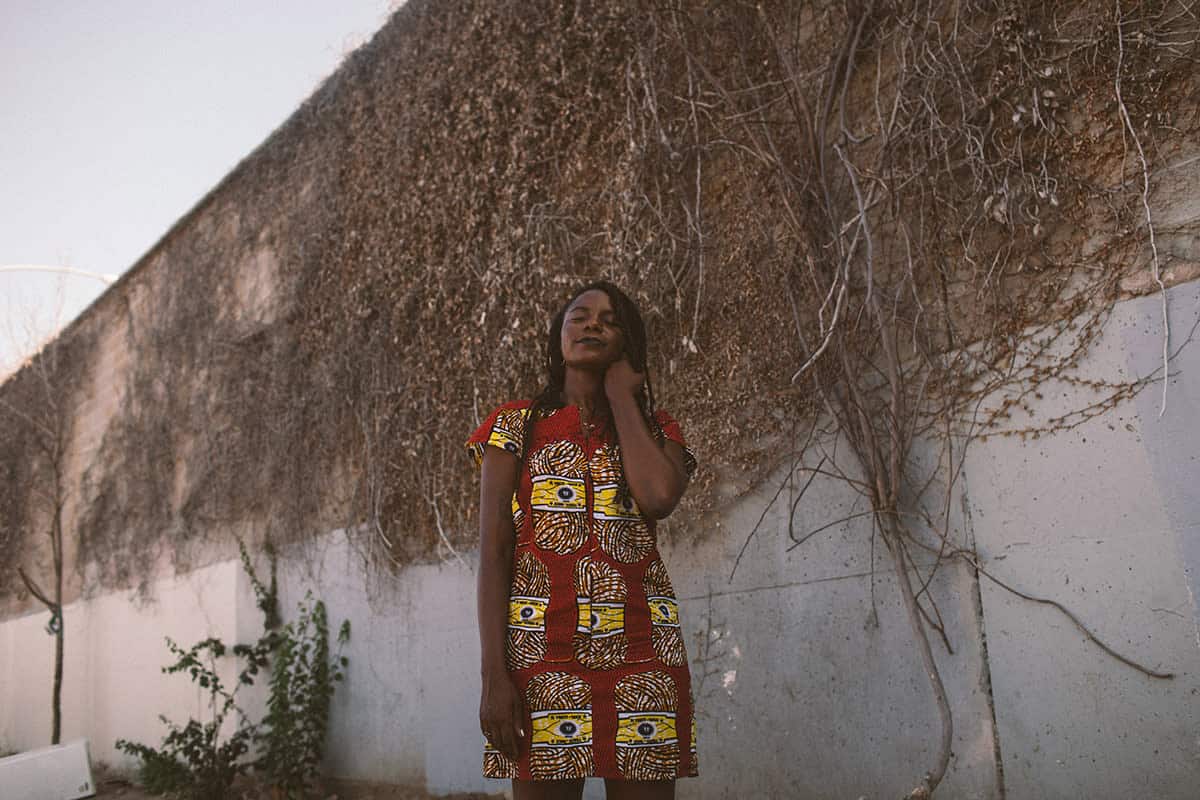
En historias desde aquí: Essence H. en Los Ángeles.
Por otro lado, ¿qué ha sido lo más gratificante de tu residencia hasta ahora?
En primer lugar, los demás residentes son increíbles. Generalmente no vivimos todos en el mismo sitio, así que es muy agradable que siempre que nos vemos hablemos de lo que sea en lo que estemos trabajando. Todo el mundo trabaja en cosas muy diferentes, pero es emocionante ver cómo han cambiado las cosas desde la primera vez que estuvimos juntos hasta ahora. Esas relaciones son geniales.
Además, me ha gustado mucho que me desafíen. A menudo, cuando trabajas en algo que tiene éxito, el cliente te pide que hagas eso mismo repetidamente hasta que deja de ser popular. Hay veces en que te sientes realmente frustrado por ello, porque te quedas encerrado en el mismo estilo de fotografiar o ilustrar o diseñar o lo que sea. Pero esto te da la posibilidad de mostrar el abanico de tus habilidades, porque el cliente eres realmente tú mismo.
Ya has pasado más de la mitad de tu residencia. ¿Qué sabes ahora que desearías haber sabido antes de empezar?
Funciono demasiado desde el miedo. Hay un nivel de confianza con el que intento desenvolverme, y a medida que aumenta lo que está en juego sigo actuando, pero hay mucha más ansiedad. En la primera mitad de la residencia, ¡estaba ansiosa! Algunos días me iba a dormir pensando: "¿He hecho suficientes cosas hoy?" Era algo que había tenido antes, pero no a este nivel. Durante un tiempo pensé que era muy importante que trabajara lo suficiente para justificar que esta gente decidiera dejarme ser residente. O que trabajaba lo bastante para justificar que la gente decidiera dejarme entrevistarlos. Creo que esa mentalidad necesitaba salir a la superficie. Necesitaba mirarme a la cara y preguntarme qué es lo que me da tanto miedo.
¿Qué consejo tienes para los creativos que estén pensando en solicitar la Residencia Creativa de Adobe?
Mi consejo para los nuevos creativos en general es que vayan con calma consigo mismos. Para los creativos que están pensando en la residencia: hazlo. No hay razón para no hacerlo. Lo peor que puede pasar es que no lo consigas, y al menos tendrás la práctica de preparar un lanzamiento y articularlo. Eso es muy valioso. Tengo amigos que tienen mucho talento, pero tienen miedo de tantas cosas que nunca intentan nada. Yo siempre digo: no tengas miedo.
Todas las imágenes son de historias desde aquí. Ver más fotografía de Aundre Larrow en su sitio webconstruido utilizando Formato.
